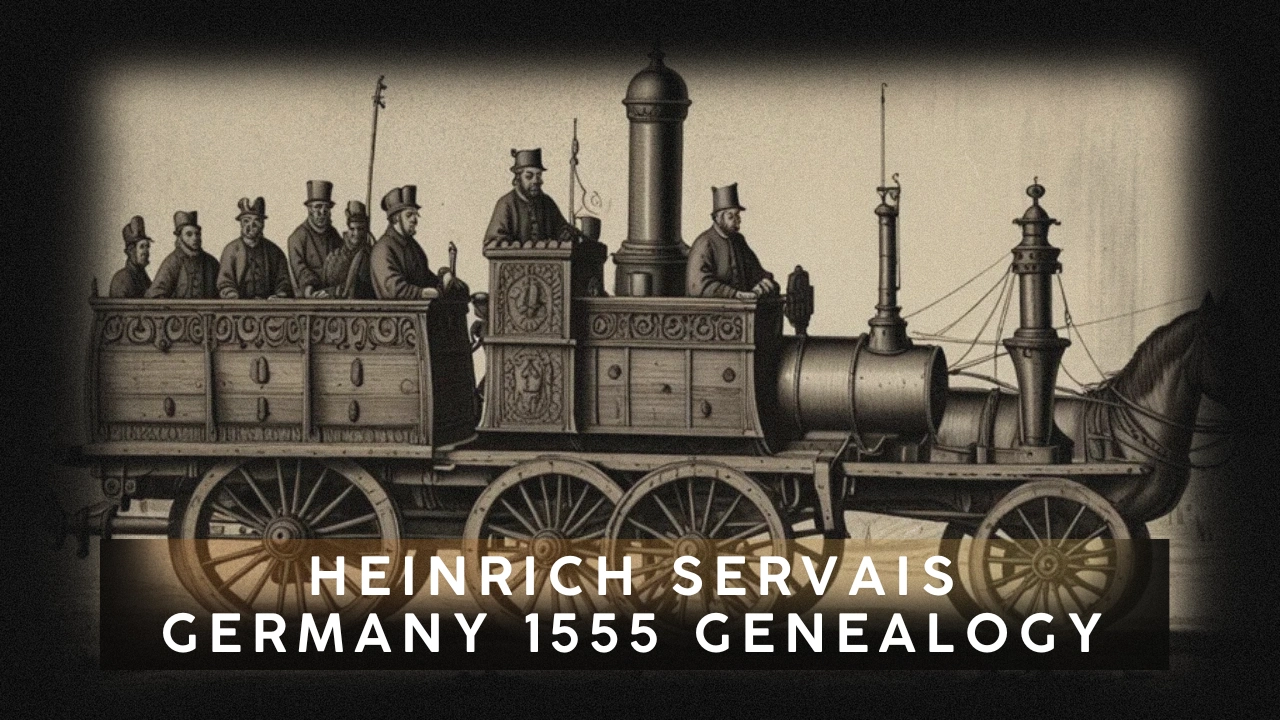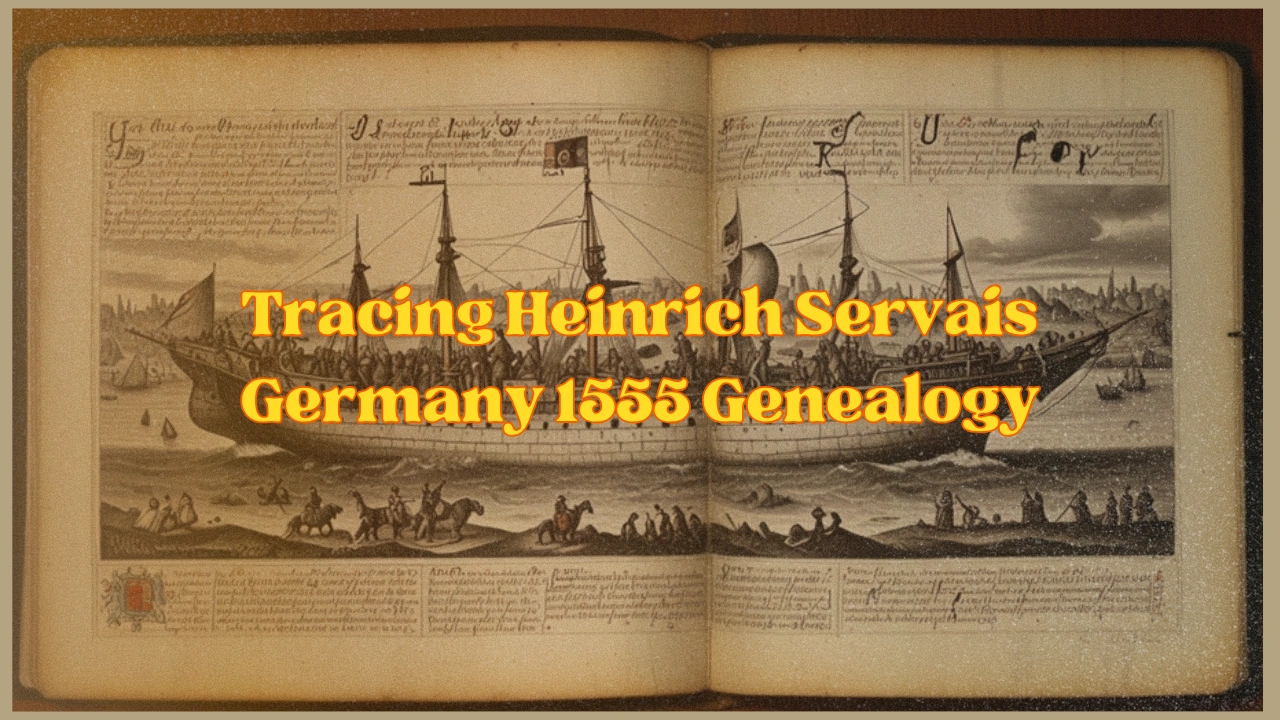Heinrich Servais Germany 1555 Genealogy: German History

Genealogy offers a fascinating glimpse into the past, connecting us with our ancestors and providing insights into the lives they lived. For those delving into the ancestry of Heinrich Servais, Germany in 1555 serves as a crucial focal point. This era, brimming with historical significance, shapes our understanding of the Servais lineage and the broader context of family history during the 16th century. In this article, we will uncover key details about Heinrich Servais Germany 1555 genealogy, providing an in-depth exploration of the historical and genealogical importance of this period.
The Historical Context of 1555 in Germany
The year 1555 was monumental for Germany, marked by the signing of the Peace of Augsburg. This treaty brought temporary religious stability to a region torn apart by the Protestant Reformation. It allowed rulers to choose between Catholicism and Lutheranism for their territories. Such a major political and religious shift inevitably influenced families like that of Heinrich Servais, whose life and lineage were deeply rooted in this transformative period.
Genealogical records from this time often reflect the social and religious divides that defined communities. Heinrich Servais Germany 1555 genealogy likely intersects with these upheavals, offering clues about the family’s faith, social standing, and regional affiliations. Understanding this context provides valuable insights into the Servais family’s journey through history.
Who Was Heinrich Servais?
While specific details about Heinrich Servais may require further research, the surname “Servais” suggests a connection to European regions influenced by French or Germanic culture. The name Servais has roots in Latin, derived from “Servatius,” and is historically associated with religious and scholarly figures. By 1555, Heinrich Servais may have been part of a lineage tied to professions such as clerics, scholars, or merchants, reflecting the diverse roles individuals played in the social fabric of Germany.
Genealogists exploring Heinrich Servais Germany 1555 genealogy often turn to church records, tax registries, and land ownership documents. These sources may reveal whether Heinrich Servais held a prominent position in his community or was among the everyday citizens adapting to the societal changes of the era.
Sources of Genealogical Information
Tracing Heinrich Servais Germany genealogy requires accessing specific types of historical documents. Records from the 16th century are often preserved in regional archives, many of which are available online or through local institutions. Church records, including baptisms, marriages, and burials, are particularly valuable as they provide direct links to family connections.
Another important resource is land ownership documents. During the mid-1500s, land was a critical asset, and records often detailed transfers or disputes involving families like the Servais lineage. By examining these records, researchers can trace the family’s movements and understand their social status within the Germanic territories of the time.
Also Read: CTNL CMFRT 12PK Your Go-To Solution for Everyday Comfort
Why 1555 is Crucial in Genealogical Research
The mid-16th century marked a critical juncture in German history. The Peace of Augsburg, signed in 1555, brought temporary stability to a region torn by religious strife. For families like the Servais, this treaty meant that their choice of religion—whether Catholic or Lutheran—could have lasting implications for their social standing, economic opportunities, and records available for future generations.
The Heinrich Servais genealogy is also shaped by the context of the Reformation. The shift from Catholicism to Protestantism (or vice versa) often determined which records were preserved or lost. Protestant churches kept meticulous registers during this time, which could explain why many of these documents survive today.
In addition, Heinrich Servais’s life in 1555 may have intersected with significant cultural changes. Education and literacy were becoming more widespread, thanks in part to the printing press and the Reformation’s emphasis on reading the Bible. These developments increased the likelihood of family histories being documented and preserved.
Example Table of Possible Records for Genealogical Research:
| Type of Record | Information Provided | Relevance to Heinrich Servais Germany 1555 Genealogy |
|---|---|---|
| Church Records | Names, dates, familial relationships | Key for tracing family lineage |
| Land Ownership Records | Property locations, disputes, sales | Indicates wealth and social standing |
| Tax Records | Financial obligations, professions | Reveals economic status and occupations |
| Historical Chronicles | Events, notable individuals in the region | Contextual understanding of the era |
The Role of Religion in the Servais Lineage
Religion played a significant role in shaping the lives of families in 16th-century Germany. The Peace of Augsburg influenced the region by granting rulers the power to decide the religion of their territories. This decision directly affected families like the Servais, determining where they could live, worship, and even work.
Exploring Heinrich Servais genealogy may reveal whether the family aligned with Catholicism or Lutheranism. Such findings offer deeper insights into their cultural and spiritual identity during this period. If Heinrich Servais’ descendants remained in Germany, they might have experienced further changes as religious tensions continued into the 17th century.
Also Read: Gina Flink TDA A Visionary Leader in Technology and Innovation
Reconstructing Heinrich Servais’s Family Tree
Genealogical research often involves creating family trees to map relationships across generations. For Heinrich Servais, reconstructing his family tree involves examining historical records from Germany and nearby regions. Names, dates, and places recorded in church registers help establish connections between individuals, while legal documents such as wills and property transfers reveal economic and social ties.
| Aspect of Genealogy | Details for Heinrich Servais |
|---|---|
| Surname Origin | Likely French, indicating possible migration or influence |
| Region of Residence | Germany, possibly near French-speaking areas |
| Records to Explore | Church registers, land deeds, tax records |
| Socio-Religious Context | Impact of the Reformation and Peace of Augsburg |
The Heinrich Servais genealogy likely shows a family network influenced by both local traditions and broader European trends. His descendants, if traced, might reveal connections to significant events and movements in European history.
Challenges in Tracing Heinrich Servais Germany 1555 Genealogy

Genealogical research for individuals from the 16th century is not without challenges. Records from this time are often incomplete due to wars, natural disasters, or the passage of time. Additionally, naming conventions in the 1500s can complicate research, as variations in spellings and Latinized forms of names were common.
For Heinrich Servais Germany 1555 genealogy, these challenges may include:
- Limited availability of digitized records.
- Inconsistent spelling of “Servais” across documents.
- The potential migration of family members to other regions.
By meticulously cross-referencing multiple sources, however, genealogists can piece together a cohesive narrative that honors the history of Heinrich Servais and his family.
Preserving the Legacy of Heinrich Servais
Understanding Heinrich Servais Germany 1555 genealogy is not merely about uncovering names and dates; it’s about preserving the legacy of a family that lived through one of the most dynamic periods in European history. Their resilience, adaptability, and cultural contributions serve as a testament to the enduring spirit of families navigating times of change.
Modern descendants of Heinrich Servais may find inspiration in their ancestors’ story, drawing connections between the past and their own journeys. Genealogy serves as a bridge between eras, reminding us of the shared experiences that unite generations across centuries.
Also Read: Avika Kaushibai Washu AI-Driven Healthcare Pioneer
Conclusion
The exploration of Heinrich Servais Germany 1555 genealogy opens a window into the life and times of a family rooted in 16th-century Germany. By examining historical records, understanding the social and religious context, and overcoming the challenges of incomplete documentation, genealogists can honor the memory of Heinrich Servais and his descendants. This journey into the past not only enriches our understanding of history but also strengthens the connections we share with those who came before us.






